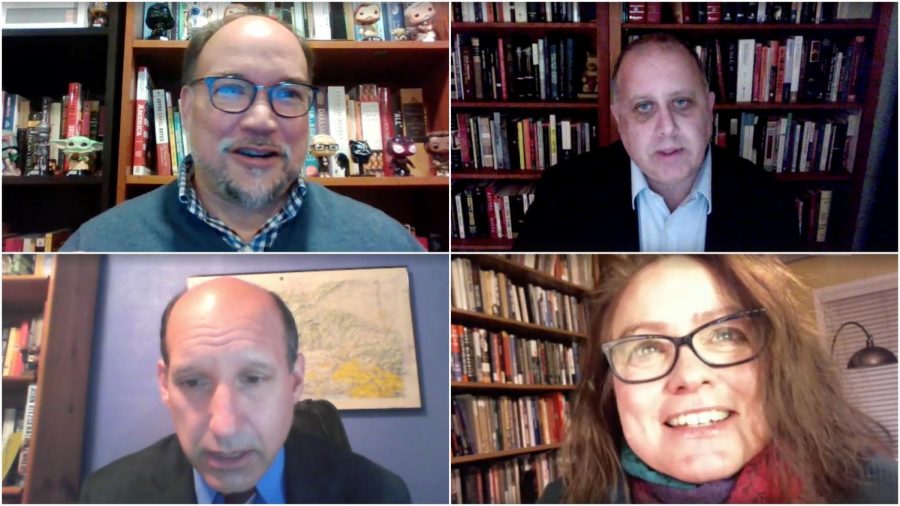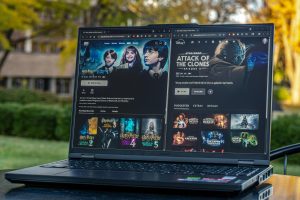Panelists answer questions on US Capitol attack
Simón Weffer, associate professor of sociology, professor of law Marc Falkoff and professor of law Robert Jones and Rosemary Feurer, associate professor of history via Microsoft Teams.
January 16, 2021
DeKALB – Students had the opportunity to ask a group of panelists questions on last week’s insurrection at the U.S. Capitol. Panelists discussed a general overview of what an insurrection is, and speakers focused on how the interaction took place, including the aftermath of it all.
The event, called “Ask an Expert: The January 6 Insurrection, Constitutional Processes and the Peaceful Transition of Power” took place from 7:00 to 8:30 p.m. Thursday via Microsoft Teams.
Beth Ingram, executive vice president and provost moderated the event. She read off questions that students sent in through a chatbox of the live stream or sent through email prior to the event.
The six panelists included professor of law Marc Falkoff, Rosemary Feurer, associate professor of history, professor of law Robert Jones, Mitch Pickerill, chair and professor of political science, Artemus Ward, professor of political science and Simón Weffer, associate professor of sociology.
When asked what an insurrection was, Ward said it was “basically violence against a government authority.”
Ward also said an insurrection does not necessarily result in an overthrow or revolution. Whether or not the Jan. 6 insurrection was more than an insurrection is up for debate, he said.
Throughout the discussion, panelists continued to address the difficulty that the media had in labeling the Jan. 6 insurrection. Falkoff said this could have been due to the fact that there were many different people there with many different motives.
“What may have been just participating in protest for some, for others may have been an attempt to engage in some kind of armed insurrection against the government,” Falkoff said.
The panelists began to unpack how the event escalated to be what it was.
The events at the U.S. Capitol started off as a rally, but it soon turned into a march, then it became a violent confrontation.
Feurer said the break-in at the U.S. Capitol is one that was parallel to a violent riot.
Feurer said it was important to understand the history of our nation’s politics in order to better understand the Jan. 6 insurrection.
“We tend to think that we always had a peaceful transition of power, and yet we have had a history of suppression of democracy, and a justification of that,” Feurer said.
Feurer discussed the demonology and anti-democratic stands that composed a corrupt government.
“We’ve allowed the president and his followers to use the state and federal judicial system even where we’ve suspected their claims were disingenuous,” Falkoff said.
Panelists discussed how students can become stronger advocates for the future and encouraged students to advocate for democracy.
Jones quoted cultural anthropologist Margaret Mead and said, “never doubt a small group of thoughtful, committed citizens can change the world; in fact, it’s the only thing that ever has.”







